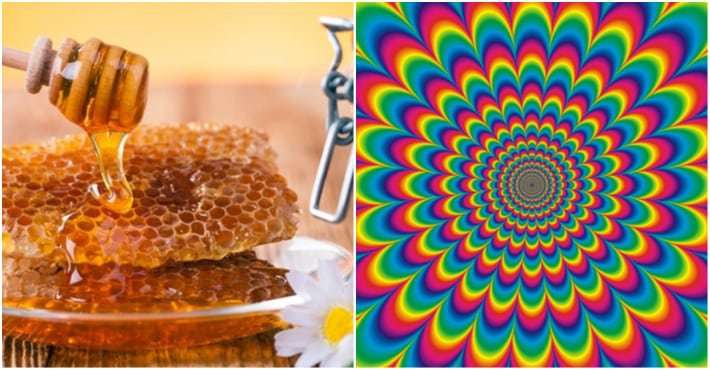As Winnie-the-Pooh has been proving for the best part of a century, honey is absolutely awesome. Deliciously sweet, incredibly healthy and almost indestructible, few foods can claim to have contributed more to human eating habits over the course of our history than everyone’s favourite sticky syrup.
Honey has been found everywhere from ancient tombs to early cave paintings and continues to be harvested and eaten in every culture around the world to this day. Truly, honey is one of the only things that we can all claim to have in common.
As one of the world’s most flexible ingredients, honey comes in all sorts of shapes and sizes. From runny liquid in cheap plastic squeezies to meticulously prepared and ridiculously expensive manuka, there’s a category to cater for every budget. However, despite the image of small bears sweetly stuffing their paws into sticky jars, there is some honey that should never be trifled with.
In the mountainous slopes that surround the Black Sea region of Turkey, a honey is made that has an astonishing hidden secret. Deli bal has been carefully produced by local farmers for thousands of years, leaving an astonishing legacy unlike any other food on earth. Also known as “mad honey”, this special substance has the power to induce lightheadedness, mild nausea and, in the right doses, extraordinary hallucinations.
As with any honey, the source of deli bal’s power comes from the plants. Though all honey is in some way a by-product of the pollination process, the flowers that produce deli bal are themselves unique. Rhododendrons are large, beautiful blooming shrubs found across Asia and North America. Though their flowers have been garden centre staples for decades, there are a few species that are rich in one particularly insidious chemical - grayanotoxin. It is this ingredient that can lend honey made from rhododendron pollen it’s peculiarly trippy quality.
Check Out This Clip Of A Hive With Over 60,000 Bees Getting Cut Out Of Couple's Ceiling:
However, though there are bees pollinating rhododendron bushes all over the world every single day, we aren’t all drooling messes, tripping balls on the kitchen floor. Clearly, there’s something else going on. What makes deli bal so special is that the specific environmental conditions in Turkey mean that only rhododendrons can thrive. The bees therefore produce honey from one type of unadulterated pollen, delivering jars of 100% pure, uncut mad honey.
The effects of deli bal should not be underestimated. Even a teaspoon is enough to induce euphoria and lightheadedness, and any more is capable of causing a full-blown acid trip. One historical example proves just how potent it can be. In the 1st Century BC an invading Roman army was brought to a standstill after savvy locals plied the soldiers with deli bal honeycombs. As the legion proceeded to lose their minds by the side of the road, defending Turkish forces emerged from the countryside and killed them all.
Despite the legacy of Rome’s unlucky soldiers, deli bal is not all about drug-induced death and destruction. Locals in Turkey take a small amount of the honey every day for its supposed health benefits, which include mental wellbeing and increased sexual prowess. If ever an excuse was needed to shake up the breakfast condiments cupboard, deli bal is clearly it.
It’s easy to dismiss honey as an innocent addition to the breakfast table. However, as weird and unusual varieties like deli bal prove, there’s a lot more to the substance than meets the eye. Next time you have a craving for something sweet, consider sampling something more exotic. You can be guaranteed a meal you’ll never forget.

monkee67 on January 30th, 2020 at 15:17 UTC »
i am surprised there is no erowid on this. only on honey in general https://www.erowid.org/animals/bee/bee_info1.shtml some other plants also would have this effect on the honey production.
bit99 on January 30th, 2020 at 14:57 UTC »
One spoonful calms you down. Two spoonfuls help you sleep. But three spoonfuls and you'll go into a sleep so deep you'll never wake up. Never!
TeamedOranger on January 30th, 2020 at 13:13 UTC »
For all you DIY's, environmental conditions found in Turkey and Nepal are necessary to make this unique honey.
Rhododendrons are large, beautiful blooming shrubs found across Asia and North America. Though their flowers have been garden centre staples for decades, there are a few species that are rich in one particularly insidious chemical - grayanotoxin. It is this ingredient that can lend honey made from rhododendron pollen it’s peculiarly trippy quality.
However, though there are bees pollinating rhododendron bushes all over the world every single day, we aren’t all drooling messes, tripping balls on the kitchen floor. Clearly, there’s something else going on. What makes deli bal so special is that the specific environmental conditions in Turkey mean that only rhododendrons can thrive. The bees therefore produce honey from one type of unadulterated pollen, delivering jars of 100% pure, uncut mad honey.